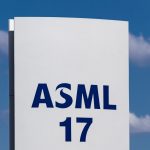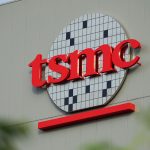
Actio Biosciences Raises $66M to Advance Rare Disease Treatments
5 minute read

Biotech startup advances ion channel treatments for rare genetic diseases with major Series B investment from Regeneron and Deerfield
Three Key Facts
- $66 million Series B funding secured by Actio Biosciences, co-led by Regeneron Ventures and Deerfield Management, to advance rare genetic disease treatments
- Two clinical programs advancing with ABS-1230 targeting KCNT1 epilepsy entering trials by year-end and ABS-0871 for Charcot-Marie-Tooth disease in Phase 1
- Precision medicine market growth projected to reach $220.68 billion by 2032 with 11.5% CAGR, driving investor interest in targeted therapies
Introduction
Actio Biosciences raises $66 million in Series B financing to accelerate development of treatments for rare genetic diseases, positioning the San Diego startup among the year’s most significant precision medicine funding rounds. The biotechnology company focuses on small molecule drugs targeting ion channel proteins, with two programs advancing toward clinical milestones.
This funding round demonstrates continued investor confidence in precision medicine despite broader biotech sector challenges. Actio’s approach centers on “inclusive precision medicine,” aiming to develop treatments that address genetic disorders across diverse patient populations.
Key Developments
Regeneron Ventures and Deerfield Management co-led the Series B round, with participation from Canaan, Droia Ventures, and Euclidean Capital. The funding follows Actio’s emergence from stealth mode in late 2023 with a $55 million Series A, bringing total capital raised to $121 million.
The company advances two distinct drug programs targeting different genetic conditions. ABS-1230 focuses on epilepsies associated with KCNT1 gene mutations, which cause severe neurological complications by disrupting brain ion channels. According to BioPharma Dive, the company plans to initiate clinical trials for this program by year-end.
The second program, ABS-0871, targets the TRPV4 ion channel protein and currently undergoes Phase 1 testing in healthy volunteers. Actio expects to begin Phase 1b trials in Type 2C Charcot-Marie-Tooth patients by year-end, with potential applications extending to overactive bladder treatment.
Market Impact
Actio’s funding success occurs amid a challenging environment for biotech financing, where investors increasingly demand clear development pathways and biological validation. The $66 million raise places the company among the larger precision medicine funding rounds of 2025.
Early-stage digital health ventures collectively raised $1.5 billion over the past year, with AI-driven and precision medicine companies securing the largest individual rounds. This trend reflects growing investor focus on data-driven therapeutic approaches and personalized treatment strategies.
The global precision medicine market continues expanding rapidly, with projections showing growth from $102.93 billion in 2025 to $220.68 billion by 2032. Some analysts forecast even higher growth rates of 16.5% annually, potentially reaching $470.53 billion by 2034 across the broader personalized medicine sector.
Strategic Insights
Actio’s small molecule approach differentiates it from competitors pursuing biologics for similar genetic targets. CEO David Goldstein emphasizes this strategy enables broader patient access and potentially simpler manufacturing compared to complex biological therapies.
The company’s “inclusive precision medicine” philosophy addresses growing industry pressure for equitable healthcare access and diverse clinical trial participation. This approach aligns with regulatory trends favoring representative patient populations in drug development.
Over 75 precision medicine companies currently operate in the market, creating intense competition for both funding and clinical success. Companies must demonstrate clear differentiation through technology platforms, strategic partnerships, or unique therapeutic approaches to maintain investor support.
Expert Opinions and Data
David Goldstein, Actio’s CEO and former co-founder of Praxis, describes the company’s ion channel targeting approach as offering “very high biological plausibility.” He notes that current market conditions require predictable development pathways, though expects future renewed interest in higher-risk innovative programs.
Goldstein emphasizes the potential of ABS-1230 to address multiple patient populations carrying KCNT1 mutations, describing this as a key component of inclusive precision medicine. The approach aims to maximize therapeutic benefit across genetically diverse patient groups rather than narrow population segments.
Industry analysts point to artificial intelligence and multi-omics analytics as critical enablers of next-generation precision medicine. These technologies streamline clinical trial design, improve patient recruitment, and accelerate drug discovery processes while reducing development costs.
Conclusion
Actio Biosciences secures significant funding to advance rare disease treatments at a time when precision medicine attracts growing investment despite broader biotech sector challenges. The company’s dual clinical programs target distinct genetic conditions using small molecule approaches, potentially offering advantages over competing biological therapies.
Success depends on demonstrating clinical efficacy while navigating an increasingly competitive precision medicine landscape. The funding provides runway to advance both programs through critical clinical milestones and establish the commercial partnerships necessary for broader market access.







